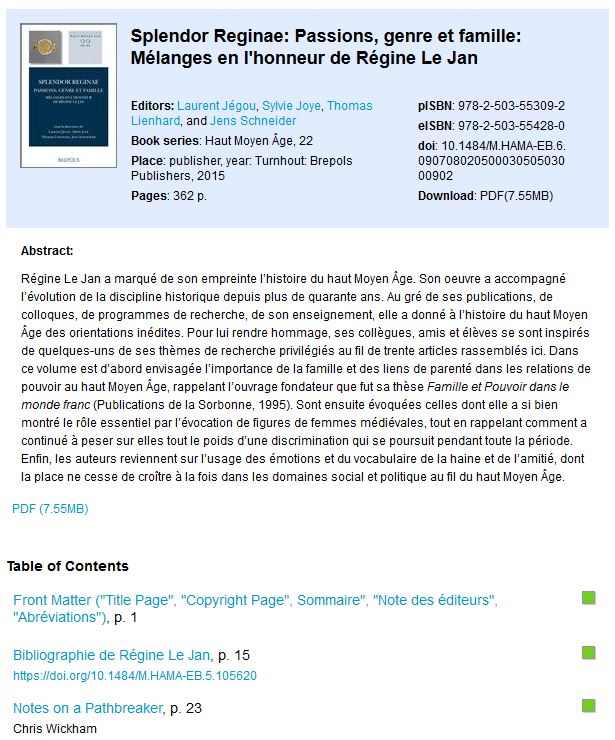Oxford researchers will be pleased to know that Ambix: the Journal of the Society for the  Study of Alchemy and Early Chemistry is now available online, starting with volume 44 (1997). For issues before that date, you will need to consult the printed copy.
Study of Alchemy and Early Chemistry is now available online, starting with volume 44 (1997). For issues before that date, you will need to consult the printed copy.
“Ambix is an internationally-recognised, peer-reviewed journal and the leading specialist publication in its field, which is viewed as a major outlet for current research. Published four times a year, in February, May, August and November, its remit is to facilitate the publication of high-quality research and discussion in all areas relevant to the history of alchemy and chemistry, including:
- ancient, medieval and early modern alchemy
- the Chemical Revolution
- the impact of atomism
- the rise of organic chemistry
- the chemical industry
- quantum chemistry
- interactions between the chemical sciences and other disciplines
The Journal’s scope extends to the history of pharmacy and chemical medicine, environmental studies of the chemical industry, and the material and visual culture of chemistry. ” (https://www.tandfonline.com/action/journalInformation?show=aimsScope&journalCode=yamb20, accessed 15 May 2018)
Ambix also publishes reviews in English of books dealing with any aspect of the history of alchemy and chemistry.








 nline version of the first dictionary of Renaissance Latin, based on its second revised print edition. It records the vocabulary of over 230 Latin prose authors from different regional backgrounds who wrote between c. 1300 and c. 1600, and gives translations in French and English in approximately 11,000 entries. A standard tool not only for latinists and neo-latinists, but also for historians, philosophers, theologians, historians of law, and intellectual historians working in the fields of Humanism, the Renaissance, the Reformation and Counter-Reformation.
nline version of the first dictionary of Renaissance Latin, based on its second revised print edition. It records the vocabulary of over 230 Latin prose authors from different regional backgrounds who wrote between c. 1300 and c. 1600, and gives translations in French and English in approximately 11,000 entries. A standard tool not only for latinists and neo-latinists, but also for historians, philosophers, theologians, historians of law, and intellectual historians working in the fields of Humanism, the Renaissance, the Reformation and Counter-Reformation.